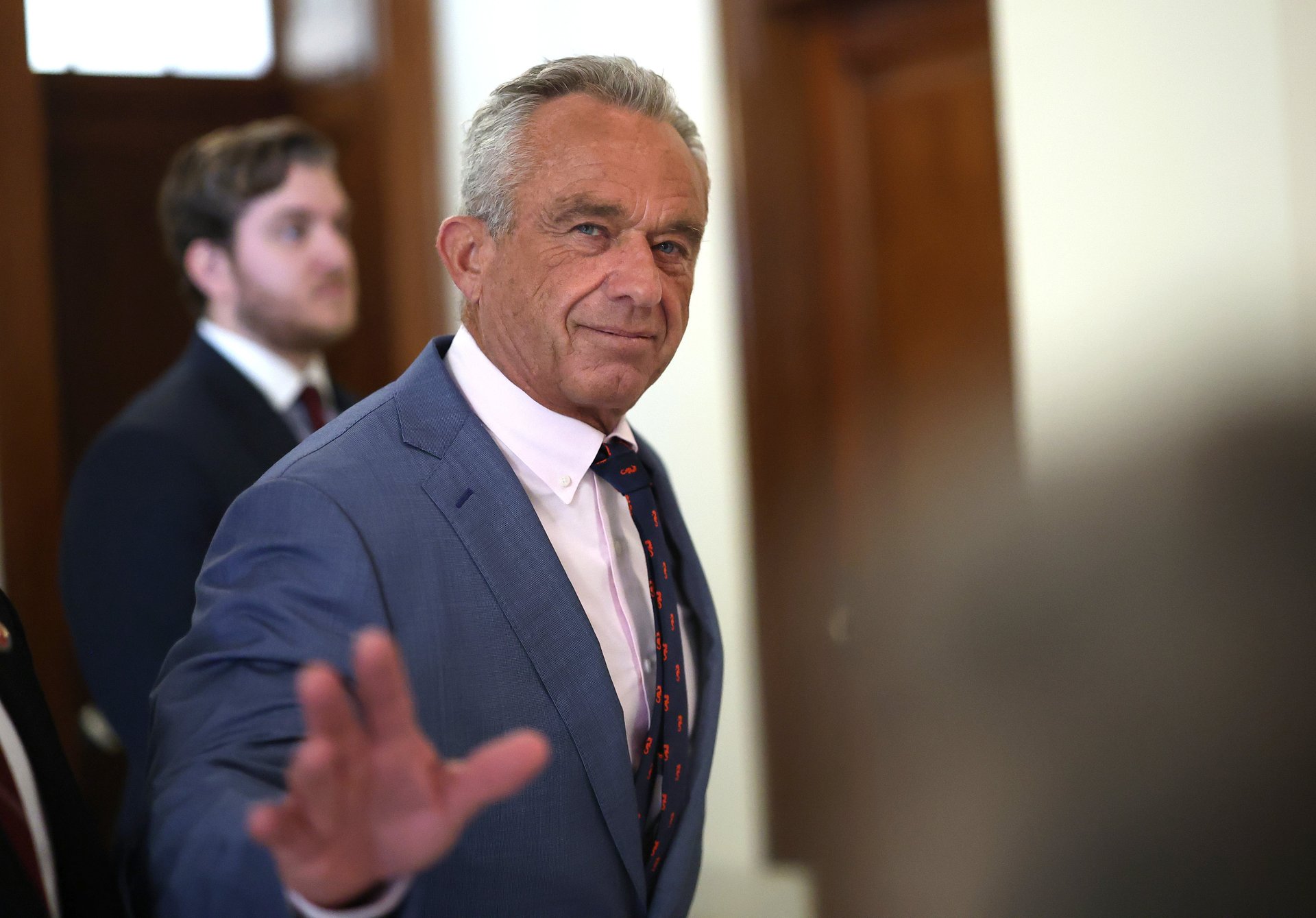RFK Jr. is open to lowering drug prices — using a policy championed by Elizabeth Warren
Robert F. Kennedy Jr. indicated he would consider using executive authority to take patents from expensive drugs that were developed using taxpayer money

Robert F. Kennedy Jr., President Donald Trump’s nominee for health secretary, reportedly expressed openness to seizing drug patents of high-priced drugs as a way to lower prices.
Suggested Reading
Politico reports that Kennedy indicated during a closed-door meeting with Senate Finance Committee staffers that he would consider adopting a proposal championed by progressive lawmakers like Senators Elizabeth Warren and Bernie Sanders. The outlet cited three unnamed sources familiar with the exchange.
Related Content
The proposal works by authorizing the government to seize patents of costly drugs that were developed using taxpayer money from drugmakers and then licensing them to other manufactures who could make and sell cheaper, generic alternatives.
It’s unclear, however, if Kennedy’s interest reflected the views of the Trump administration. Kennedy’s spokesperson Katie Miller refuted the characterization of his remarks, Politco reported.
“After POLITICO was told this did not occur the way Democrats have described it, they’re still seeking to publish it in an attempt to denigrate Bobby Kennedy and create a story where there is not one,” Miller told the outlet. “The fact remains, this did not occur. This is a smear campaign against Donald J. Trump.”
Advocates of the policy argue increased competition can drastically cut drug prices.
A U.S. Food and Drug Administration (FDA) report found that a drug’s wholesale price drops an average of 39% after one single generic drug competitor enters the market. With four generic competitors, a drug’s price plummets 79%. These cuts result in billions of dollars in savings for American consumers.
In the United States, drug patents last 20 years from when a patent application is filed. During this period, the pharmaceutical company that owns the patent can set the price of a drug without competition.
Because drugs are patented years before they complete clinical trials, secure regulatory approval, and hit the market, pharma companies try to extend their exclusivity rights as much as possible. One way of achieving this is to file more patents that fend off cheaper copy cats from launching.
Pharma companies say this is necessary to recover the millions of dollars they spend in researching and developing drugs. Some researchers have disputed this claim. A 2022 study found that research and development costs “did not explain the variation” for drug prices.
